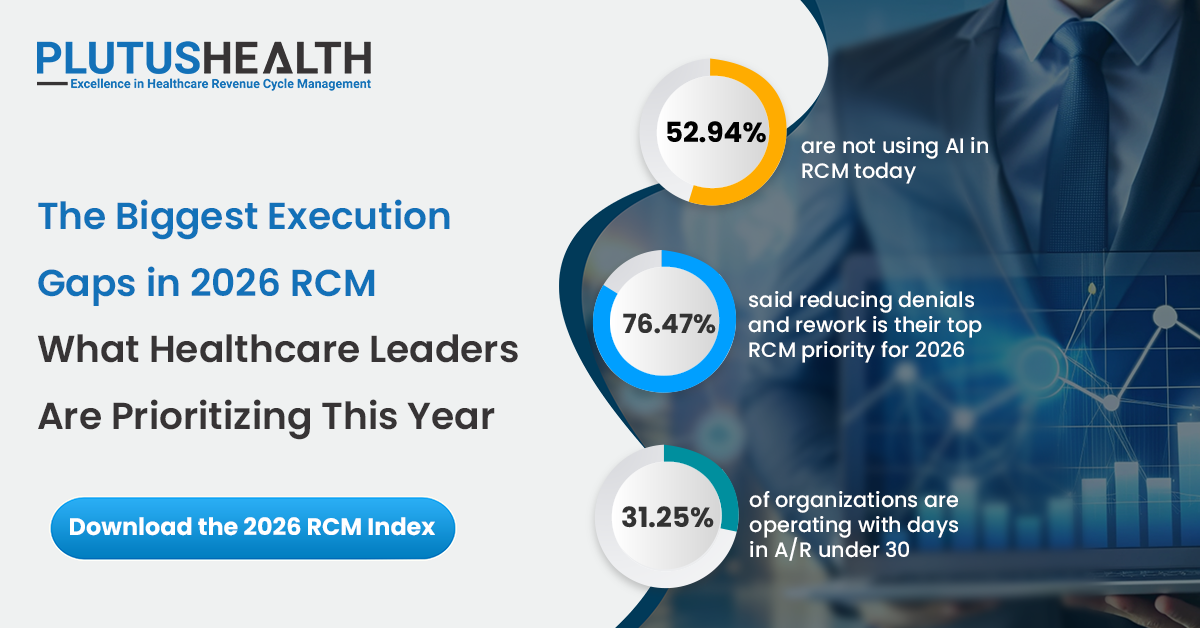The Hidden Costs of Revenue Cycle Management That No One Talks About
Let's clarify: Revenue Cycle Management (RCM) is more than payment collection. It's about getting the full amount owed to your healthcare practice, but at what cost? While many healthcare providers focus on standard KPIs, the real killers are the hidden costs that sneak in through administrative overhead, denied claims, and inefficient processes. And here's the catch—these hidden costs don't just shave off pennies. They could be draining millions from your bottom line annually.
1. Administrative Overhead: The Silent Budget Killer 💸
When discussing RCM, everyone imagines denials, claims, posting rejections, and cash flow. But administrative costs? Not so much.
Are you aware that healthcare administration costs comprise 15-25% of all the expenditure spent in healthcare? What if just 5% of those costs are still tied up in the inefficient RCM processes? This means an enormous proportion of the money is being put into tasks that could be done automatically.
Take a real-life example:
Case Study - Plutus Health Inc. Client: A medium-sized healthcare giver was obstructed by manual activities, and therefore, the admin costs skyrocketed. Plutus Health tailored their RCM process by cutting their administrative overhead by 25% in the first year, using fewer resources, and enjoying more uptime, making their workflows flow seamlessly.
2. Denied Claims: The Cost Nobody Sees 🚫
Here is a harsh reality: 30-40% of claims are denied on the first submission. Think about that. For every $1 million in claims you submit, $300,000 to $400,000 is tied up in denials. But the story doesn't stop there.
A single denied claim requires an average of $25 to fix and re-submit. Multiply it by the number of claims, and suddenly, you are dealing with six-figure expenses just because of denied claims.
Plutus Health Case Study:
A healthcare provider was losing $500,000 annually to claim denials. Plutus Health brought in an AI-based RCM system that alerted the team of the potential denials before the claims were submitted. Within six months, they reduced denials by 30% and recovered $2 million that would've otherwise been lost to rework and delays.
Takeaway: You don't just lose money on denied claims. You lose time, staff hours, and patient satisfaction—not reflected on a balance sheet but directly impact your profitability.
3. Inefficient Processes: Death by a Thousand Cuts ✂️
Your RCM process's inefficiencies may not be immediately evident in monthly reports, but they can silently erode your revenue. These inefficiencies might stem from delays in verifying patient eligibility, errors in coding, or even a sluggish claims submission process.
The hidden cost? Time.
Time is money, and nowhere is that truer than in medical billing. Practices with inefficient processes see longer payment cycles, increased labor costs, and higher rates of claim rework. This results in delays in cash flow that can cripple smaller practices.
Case Study - Plutus Health Solution:
A large healthcare provider struggled with a 60-day payment cycle thanks to sluggish RCM processes. After partnering with Plutus Health, they automated key steps like eligibility checks and claim scrubbing. The result? They reduced their payment cycle to 28 days and cut their operating expenses by 20%.
4. The Real Hidden Cost: Stunted Growth 📉
Hidden costs like administrative overhead, denied claims and inefficient processes pile up at the root of a problem: missed growth opportunities. Every dollar wasted due to inefficiencies could have been spent on introducing new technologies, growing services, and increasing patient care.
Think about it. If your practice is losing $2 million a year to hidden RCM costs, that's $2 million that's not going into hiring more staff, upgrading systems, or expanding your services. And this is where Plutus Health can make a difference.
Healthcare providers can unlock significant growth opportunities without cutting corners on patient care by uncovering and addressing these hidden costs.
Why Outsourcing is the Game Changer
Outsourcing RCM can change your entire narrative when given to specialized medical billing companies like Plutus Health Inc. Outsourcing isn't just delegating tasks; it is investing in customized growth technologies for your company, like AI-driven solutions and knowledge experts with consultations that drastically reduce hidden costs.
Let's break it down:
- Administrative Overhead? Gone, thanks to automation.
- Denied Claims? Reduced, with predictive analytics and better first-pass rates.
- Inefficient Processes? Streamlined, leading to faster payments and lower operating expenses.
And here's the kicker: Practices that outsource RCM to companies like Plutus Health often see a 30-50% improvement in overall financial performance. Why? Because they no longer have to manage these hidden costs internally.
Final Thought:
Conclusion: It's Time to Uncover the Hidden Costs
Healthcare providers are under tremendous pressure to raise their profit margin while still providing quality care to patients. However, effective management will remain unattainable if these hidden discrepancies are not cleared. Plutus Health Inc. is at the forefront of helping healthcare providers by keeping their revenue cycle under control and bringing to light, reducing, and eliminating hidden costs that others don't notice.

















































